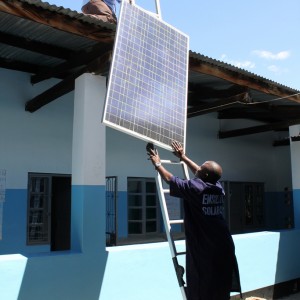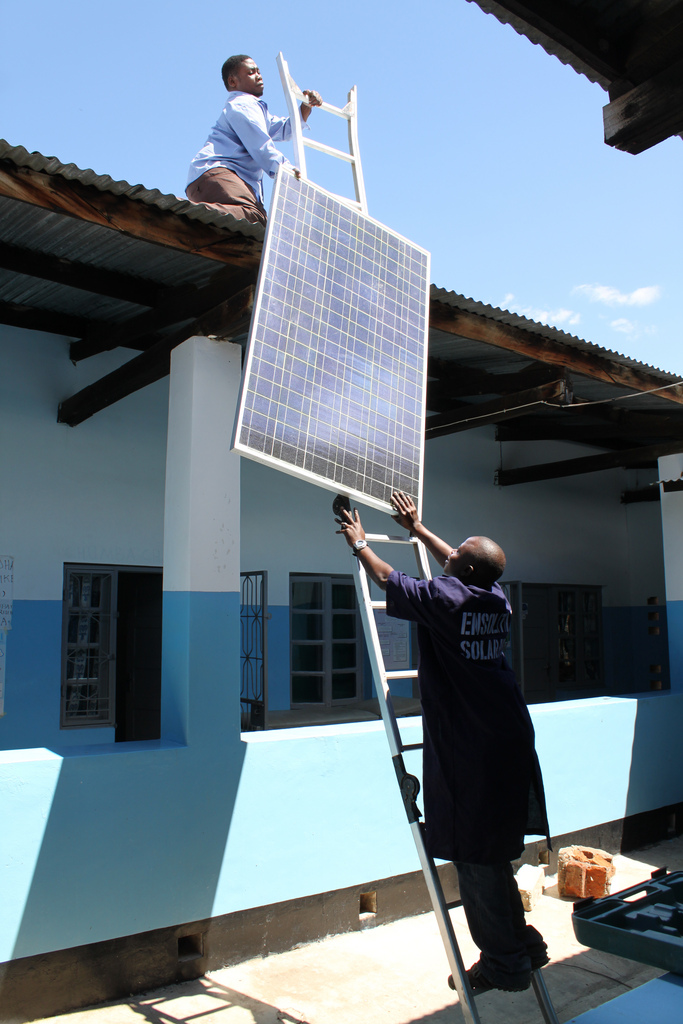In Tanzania, East Africa, approximately only 40 per cent of residents have electricity access, however the government is now looking to give power to homes and health centres with the help of solar.
Before solar panels provided power to the only health centre in Masaki village, staff were forced to use the light from their mobile phones or dim flashlights during night time emergencies/ baby deliveries.
The centre is located five hours away from Dar es Salaam, the capital, on a dirt track. They service the surrounding villages population of about 1.5 million people.
It is now powered by a 2KW solar panel system installed on it’s rooftop, which cost around $15,000, and the government has plans to install many more.
The One Million Solar Homes initiative
The Tanzanian national government announced the One Million Solar Homes initiative this February, which has a goal of providing one million properties with solar energy by 2017.
The initiative is being implemented by Off Grid Electric, a Tanzanian solar company who aims to make clean energy affordable for everyone.
Off Grid Electric have said they will provide 10 per cent of the homes in the country with power.
Only 40 per cent of homes currently have power access, and in rural areas the accessibility is even lower.
The Africa Progress Panel, run by Kofi Annan, released a report demonstrating the challenges across Africa, and it showed that the total energy usage in Africa (excluding South Africa) is less than in Spain.
An average European consumes the same amount of energy in a single month that what a Tanzanian would in eight years.
‘Power, People, Planet: Siezing Africa’s Energy and Climate Opportunities’ was the title of the report, and it signaled that an increase in power generation of 10-fold is needed in order to provide electricity access to all Africans by 2030.
Doing this using fossil fuels, especially coal, will have a huge affect on the world’s climate.
However, thanks to the dropping price of solar panels and its increasing popularity, solar is now in competition with traditional energy forms.
The One Million Solar Homes initiative has received funding from the government’s Rural Energy Agency, as well as international donors like the World Bank.
Home owners from rural areas are also being lent money by micro-finance organisations so they can purchase solar panels. The total cost of installation can reach $1,000.
“People who have small shops no longer close their shops early because they don’t have electricity. They can now operate until late at night. The availability of solar electricity has helped control immigration of people to urban areas,” said Dr Brenda Kazimili, alternative energy specialist from the University of Dar es Salaam.
All dispensaries and health centres throughout the country that are not connected to the grid will have solar panels installed by the government.
According to Ahmed Mkamba, the clinical officer at the Masaki Village health centre, said the changed made were well needed.
“We’d begged for so long for solar power at this health centre. Life was unbearable here. We faced so many challenges and it was hard to work at night or do tests that required electricity,” he said.
The power from the solar panels and battery storage (so they can use the power at night) is used to run computers that store patient records, as well as lighting up the compound within the centre that is about three-four acres and operates testing equipment of HIV/Aids.
“We have even installed a satellite dish to keep the health workers entertained after work. Mothers no longer have to be sent to far-away health centres to conduct simple tests and health workers don’t have to walk long distances simply to charge mobile phones,” said Mr Mkamba.
Photo courtesy of PRI’s The World.

